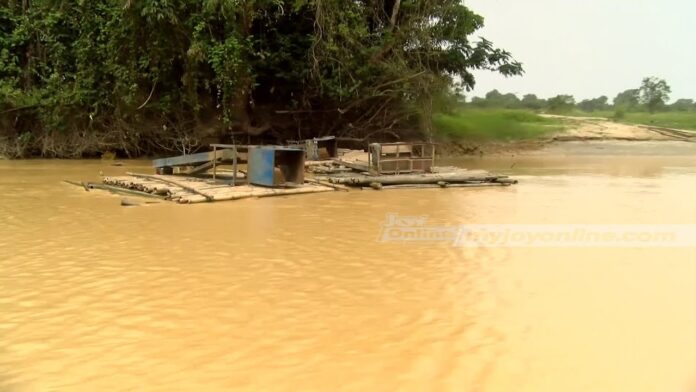Illegal small-scale mining, known as galamsey, has been a persistent challenge in Ghana and across Africa.
It has led to widespread environmental degradation, particularly the destruction of water bodies, farmlands, and forests. Despite various governmental efforts to curb this problem, the menace continues to thrive due to the deep-rooted socio-economic conditions, weak enforcement, and corruption.
However, the Africa Development Council (ADC) has proposed a bold and long-term solution— nationalization of all mines in Ghana. This approach offers a promising pathway toward tackling the galamsey issue and restoring water quality.
The Current Crisis
Ghana’s rivers, including the Pra, Ankobra, and Birim, which once provided clean water to communities and served agricultural purposes, have been severely polluted due to the indiscriminate activities of illegal miners. Mercury, cyanide, and other toxic chemicals used in mining have rendered many water sources unsafe for consumption and irrigation. The problem extends beyond water pollution, as fertile lands are being degraded, threatening food security and local economies dependent on agriculture.
Why the Galamsey Menace Persists
Efforts to curtail galamsey have often failed due to:
1. Economic Incentives: Galamsey provides a livelihood for many Ghanaians in rural communities where unemployment rates are high.
2. Weak Regulation and Enforcement: Corruption among law enforcement agencies and political interference have made regulations difficult to enforce.
3. Fragmented Land Ownership: The involvement of local chiefs and landowners in granting illegal mining concessions further complicates efforts to manage land resources.
4. Lack of Alternatives: The absence of viable economic alternatives for the youth in mining communities creates a fertile ground for illegal mining to persist.
Nationalization: A Bold and Viable Solution
Nationalizing the mining sector as proposed by ADC could be the strategic move Ghana needs to address this issue at its roots. Here’s how this approach could work:
1. Centralized Control and Accountability:
Nationalizing all mines would place control of Ghana’s mining resources firmly in the hands of the government. This would streamline operations and create a centralized framework for managing both legal and illegal mining activities. A unified approach would ensure that there is a strict enforcement of environmental standards, and all mining activities would be subject to oversight.
2. Restoring Water Bodies through Sustainable Mining:
The government, through a nationalized system, would have the resources and capacity to implement sustainable mining practices. Mining concessions could be strictly monitored, ensuring that activities near water bodies are limited, and that proper waste disposal and reclamation efforts are adhered to. The revenue generated from nationalized mines could be used to fund water restoration projects, such as cleaning and rehabilitating polluted rivers.
3. Curtailing Corruption and Illegal Mining:
Nationalization would significantly reduce the influence of local power brokers, chiefs, and corrupt officials who often enable illegal mining. With stricter control and governance over mining licenses, illegal miners would find it harder to operate. The establishment of special task forces under government supervision, with clear authority and transparency, would ensure enforcement.
4. Economic Alternatives and Livelihood Support:
Transitioning from galamsey to formal employment opportunities could be facilitated under a nationalized system. Former illegal miners could be integrated into the formal economy through government-operated mining cooperatives, where they receive proper training and fair wages. This would ensure that communities dependent on mining for survival are not left behind. Additionally, alternative livelihood programs, such as eco-tourism and sustainable agriculture, could be introduced, financed by mining revenues.
5. Revenue for Development:
Profits generated by nationalized mines could be redirected into infrastructure development, healthcare, and education, particularly in mining-affected communities. This would address some of the socio-economic drivers of illegal mining, as improved public services and job opportunities would reduce reliance on galamsey.
A Regional Approach: Expanding Beyond Ghana
The galamsey issue is not unique to Ghana but prevalent across Africa. A coordinated, continental approach to mining could create a pan-African mining framework, where resources are jointly managed by governments under a standardized system. The African Development Council (ADC), with its regional influence, can advocate for this collaborative strategy, sharing best practices and ensuring that nationalization is effectively implemented across borders.
Challenges to Nationalization
While nationalization offers a promising solution, it comes with its own challenges:
– Political Resistance: Powerful interests in the mining sector may resist nationalization, and managing these influences will require significant political will and transparency.
– Capacity Building: The government must develop the capacity to efficiently manage the mines and regulate operations, ensuring that bureaucratic inefficiencies do not lead to corruption or mismanagement.
– Funding and Infrastructure: There will be a need for heavy investment in mining technologies, environmental clean-up initiatives, and infrastructure development to restore water quality and create sustainable mining practices.
Conclusion
The nationalization of Ghana’s mining sector, as advocated by the Africa Development Council, offers a structured, long-term approach to addressing the galamsey menace. By taking control of the country’s valuable resources, the government can implement sustainable mining practices, restore water quality, and offer alternative livelihoods to those affected by the illegal mining economy. This approach, though challenging, could serve as a turning point in Ghana’s fight to protect its environment while ensuring that its resources benefit all citizens.
The future of Ghana’s water bodies, agricultural lands, and overall ecosystem depends on bold actions like nationalization to reverse the damage caused by galamsey and set the country on a sustainable path forward.
Source: Frank Worlanyo Nyonator



